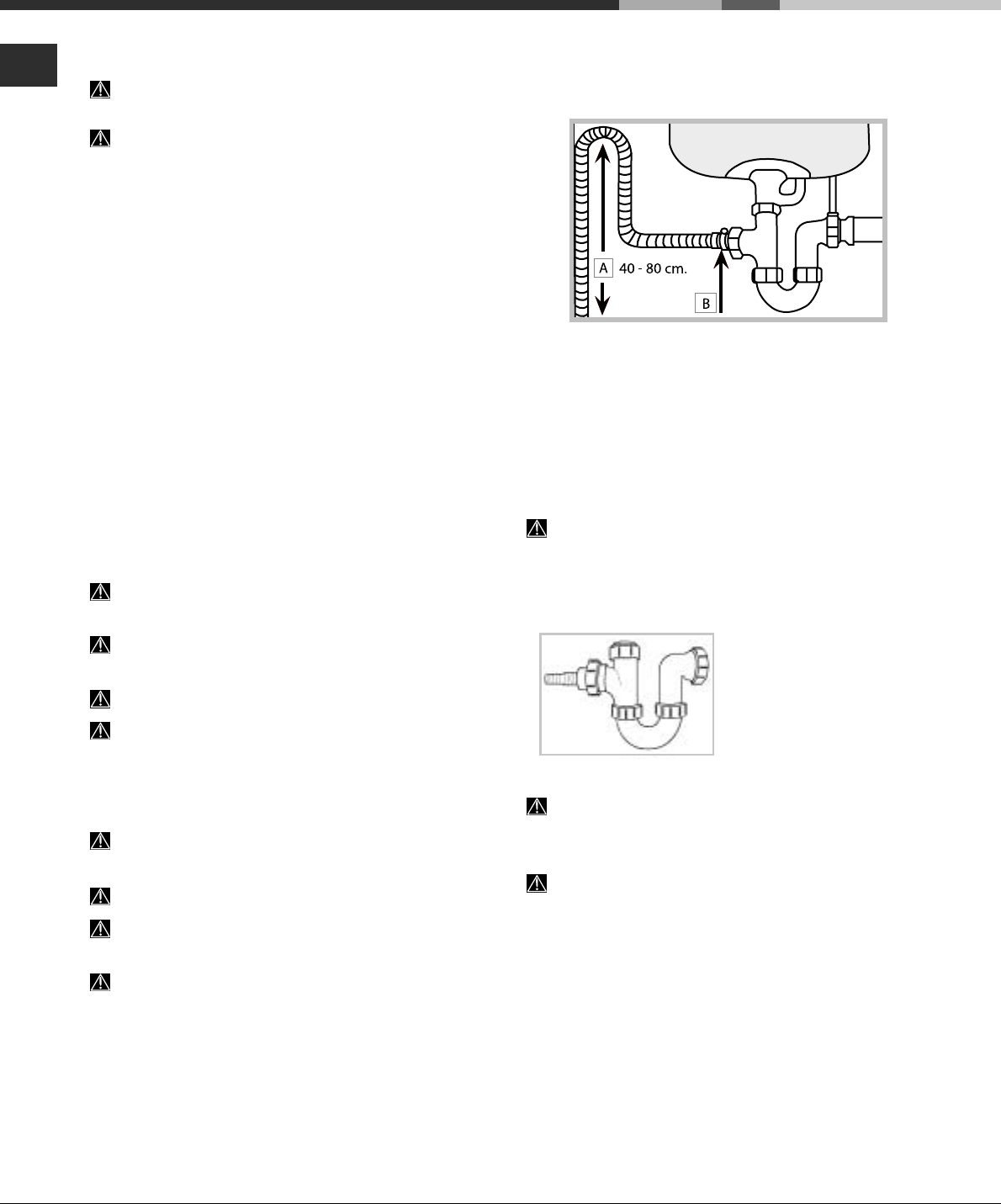
4
EN
Connecting the water supplies
Connection to the water and electricity supplies should
only be performed by a qualified technician.
The dishwasher should not stand on top of the water
hoses or the electricity supply cable.
Connecting the water inlet hose
The water inlet and outlet hoses and the electricity supply
cable may be positioned towards the right or the left in
order to achieve the best possible installation.
• To a suitable cold water connection point: before
attaching the hose, run the water until it is perfectly
clear so that any impurities that may be present in the
water do not clog the appliance; after performing this
operation, screw the inlet hose tightly onto a tap with a
¾ gas threaded connection.
• To a suitable hot water connection point: your
dishwasher may be provided with hot water from the
mains supply (if you have a central heating system
with radiators) provided that it does not exceed a
temperature of 60°C.
Screw the hose to the tap as described for connection
to a cold water supply.
If the inlet hose is not long enough, contact a specialist
store or an authorised technician (
see Assistance
).
The water pressure must be within the values indicated
in the Technical data table (
see Installation
).
The hose should not be bent or compressed.
The appliance must be connected to the water supply
network using new hoses.
Do not use old hoses.
Ensure that the new hose supplied is connected and the
old hose is disposed of safely.
DO NOT overtighten the hose connector, hand tight is
sufficient.
Ensure the fill hose is not kinked.
Tap connections*: A range of adaptors are available
to suit your tap.
DO NOT connect the dishwasher to a single outlet
instantaneous water heater or an electric heater.
Sink Waste System
Connect the outlet hose (without bending it) to a drain duct
with a minimum diameter of 32 mm.
The outlet hose must be at a height ranging from 40 to 80
cm (from 15’’ to 31’’) from the floor / surface where the
dishwasher rests (A).
• before connecting the drain hose, remove any internal
restrictions; this will prevent a build up of debris which
could cause a blockage
• remove any restrictions from the waste spigot and ensure
that the sealing bung is removed (B).
It MUST NOT be connected to a surface water drain.
* Only available in selected models.
• Untie the end of the GREY drainage hose from the rear of
the appliance.
• If fitting an under sink
waste disposal unit, cut out
the membrane, bung or
blanking plug.
Ensure the drain hose is securely attached, to
prevent it coming away while the machine is in use and
causing a flood.
Fit hose to waste securely using a “Jubilee” type
clip.


















